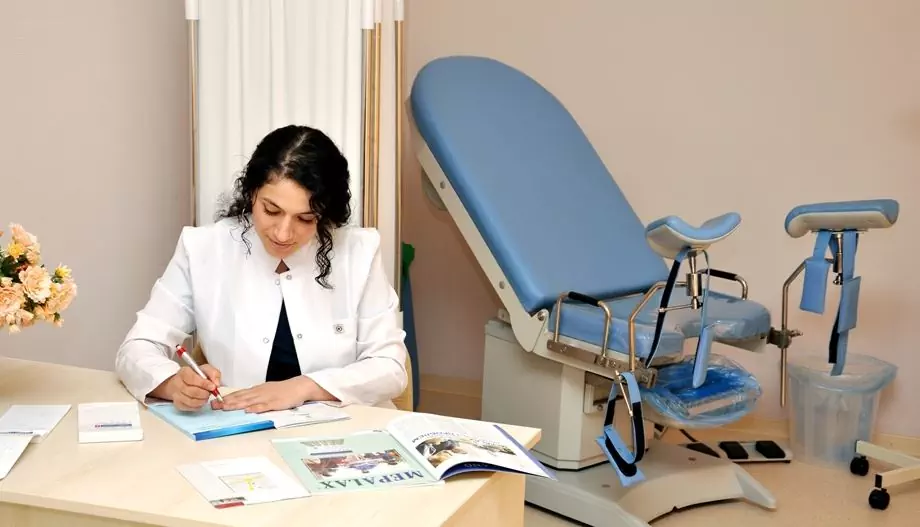- Author Rachel Wainwright wainwright@abchealthonline.com.
- Public 2023-12-15 07:39.
- Last modified 2025-11-02 20:14.
Phthisiatrician
A phthisiatrician is a doctor specializing in the prevention, diagnosis and treatment of tuberculosis, an infectious disease caused by Koch's bacillus (Mycobacterium tuberculosis).

What does a phthisiatrician treat?
Tuberculosis is a potentially fatal airborne disease. The main organ that affects tuberculosis is the lungs, however, this disease can also destroy other systems of the human body: kidneys, bones, liver, prostate gland in men, fallopian tubes and ovaries in women, abdominal cavity, etc. Phthisiatricians call this condition extrapulmonary tuberculosis. Mycobacteria of the disease can be excreted with sputum (with damage to the respiratory system), with feces (with damage to the gastrointestinal tract), with sperm or urine (with damage to the genitourinary system), with menstrual flow (with damage to the female genital organs), with chest milk (for tuberculosis of the mammary glands), etc. You can become infected with tuberculosis by inhaling air containing particles of the patient's saliva.
The main diseases that a phthisiatrician treats are:
- Lupus;
- Tuberculosis of the eyes;
- Intestinal tuberculosis;
- Musculoskeletal system tuberculosis;
- Tuberculous meningitis;
- Genital tuberculosis;
- Tuberculosis of the kidneys and urinary tract;
- Acute glomerulonephritis.
When to make an appointment with a phthisiatrician
The main symptoms of tuberculosis include weakness, feeling unwell, coughing with a small amount of yellowish or greenish sputum, increased sweating at night, shortness of breath due to the presence of fluid or air in the pleural cavity. As the disease progresses, the amount of sputum increases, and traces of blood may be present in it. If you find characteristic symptoms in yourself or your loved ones, you should go for a consultation with a phthisiatrician.
If you suspect tuberculosis, the phthisiatrician doctor prescribes the following studies:
- Mantoux reaction (or tuberculin skin test), showing the presence of infection;
- Examination of sputum for microbes;
- Microbiological cultures of sputum, pus, urine, cerebrospinal and pleural fluids and other biological material;
- Sowing on Lowenstein-Jensen Wednesday;
- Hepatic test;
- Eye examination;
- Hearing acuity test;
- A urine culture to test for renal tuberculosis.
During the consultation, the phthisiatrician proposes to carry out an X-ray examination (fluorography), which allows differential diagnosis between tuberculosis and other lung diseases - silicosis, abscess, pneumonia, to determine the nature of tissue damage (focal, infiltrative, cavernous, disseminated), localization and prevalence of the process. In addition to fluorography, a phthisiatrician doctor can prescribe such types of diagnostics as:
- Biopsy;
- Microbiological diagnostics;
- Tuberculin diagnostics;
- Diagnosis of extrapulmonary tuberculosis;
- Cerebrospinal fluid examination;
- MRI;
- CT scan.
In large medical institutions, a phthisiatrician doctor may specialize in the treatment and diagnosis of certain organs. For example, tuberculosis of the lungs is dealt with by phthisiopulmonologists, kidney - by phthisiourologists, larynx - by phthisiotolaryngologists. Children with tuberculosis are treated by a pediatric phthisiatrician - phthisiopediatrist.
Field of activity of a pediatric phthisiatrician
The children's phthisiatrician deals with the problems of detection, treatment and prevention of tuberculosis in children. During the consultation, the phthisiatrician finds out what the child was sick with throughout his life, assesses the conditions of his residence, the results of Mantoux, fluorography, examines the peripheral lymph nodes. Most often, primary infection is detected in children, which means the ingestion of mycobacterium tuberculosis into the body, but not direct infection with the disease. However, there is a likelihood of developing the disease in children with a "turn of the tuberculosis test": small patients with a positive skin tuberculin test regularly come to see a phthisiatrician and undergo preventive treatment.
Phthisiatrician doctor's recommendations
In order to protect yourself and your children from tuberculosis, phthisiatricians recommend following a number of preventive measures. These include:
- Measures that increase immunity (good and varied nutrition, an active lifestyle, work and rest regime, refusal to consume alcohol and smoke);
- Measures aimed at improving living and working conditions (ventilation of premises, maintaining sanitary and hygienic standards, etc.);
- Preventive use of chemotherapy drugs in order to prevent the onset of the disease (assigned to persons who are in constant contact with patients who discharge bacteria, as well as in the presence of unfavorable living conditions, chronic diseases, etc.);
- Anti-tuberculosis vaccination.
Phthisiatricians argue that it is impossible to contract tuberculosis when shaking hands with a patient - bacteria are transmitted only by airborne droplets, however, rooms with stale, immobilized air, the use of common household items and tactile contact significantly increase the risk of infection.
Found a mistake in the text? Select it and press Ctrl + Enter.






